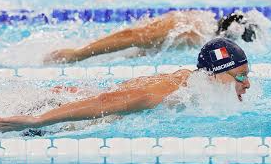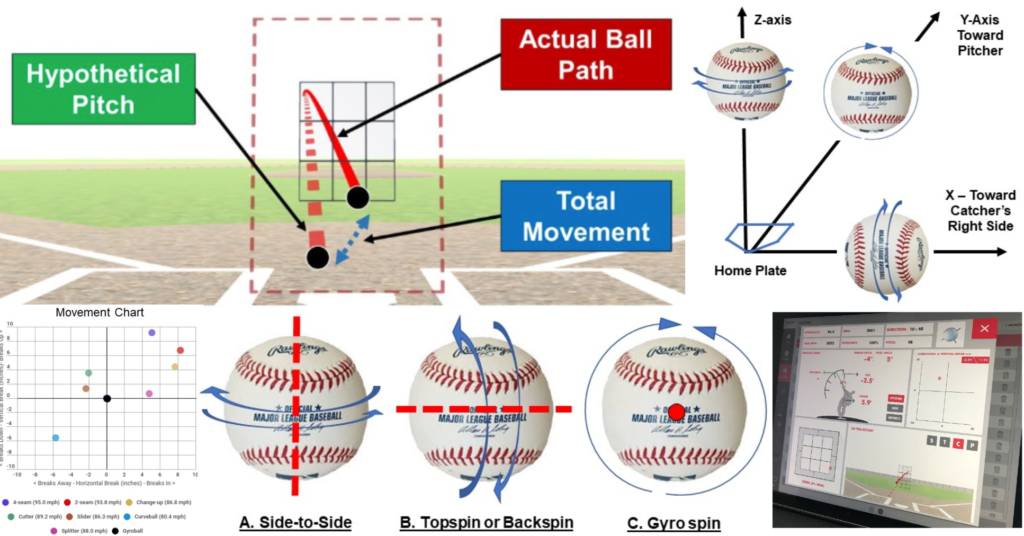What Connects a 4-Time Olympic Swimming Champion with Today’s MLB Pitcher?
The Limitations of Data-Driven Approaches in Elite Sports: A Deep Dive into the Athlete’s Mindset
In the modern era, where sports are increasingly governed by numbers and analytics, a surprising trend has emerged among some of the most successful athletes. These elite competitors are often eschewing the data-heavy approaches that many believe are essential to achieving peak performance. The stories of French swimmer Léon Marchand and MLB pitchers provide a compelling lens through which to examine this phenomenon. Both highlight the potential pitfalls of over-reliance on analytics in sports and raise questions about the true value of data in athletic performance.
The Marchand Perspective: Trusting Instinct Over Data

Léon Marchand, an Olympic swimmer who captured the world’s attention with his stunning performances during the 2024 Paris Olympics, offers a fascinating case study in this regard. Marchand walked away from the games with an incredible haul of four gold medals and one bronze, solidifying his status as one of the premier athletes of his generation. Yet, what’s equally remarkable is his unconventional approach to training and performance.

In a world where athletes are often surrounded by teams of analysts who meticulously track every possible metric—from split times to stroke efficiency—Marchand’s indifference to such data is almost shocking. He has openly stated, “Scientific data doesn’t mean much to me. They’re measured, but I don’t use them. Just as I don’t study videos of myself. Not even when I was younger to correct or improve specific points in my technique.” This statement flies in the face of the growing belief that data is king in sports performance. Marchand’s success seems to suggest that for some athletes, trusting in their own experience, intuition, and feel for the sport may be more valuable than any set of numbers.
The Dark Side of Baseball Analytics: When Data Becomes a Burden

The world of Major League Baseball (MLB) offers another perspective on the limitations of data-driven approaches. The article “The Dark Side of Baseball Analytics” delves into the negative impact that the overuse of analytics can have on pitchers. The push for ever-greater performance, fueled by an obsession with metrics like spin rate, velocity, and pitch efficiency, has led to increased physical strain on pitchers.
This relentless focus on numbers can lead to burnout, injury, and diminished performance over time. The pressure to conform to data-driven expectations can strip athletes of their natural game sense, forcing them into rigid moulds that don’t always fit their individual strengths. The result is a paradox: analytics meant to enhance performance may, in some cases, lead to its decline.
The Common Thread: The Human Element in Sports
The stories of Léon Marchand and MLB pitchers highlight a crucial point: the human element in sports cannot be reduced to numbers alone. While data and analytics offer valuable insights, they are not a substitute for the intuition, experience, and mental fortitude that elite athletes bring to their performances.
Marchand’s success without reliance on data challenges the notion that analytics are necessary for peak performance. Similarly, the struggles of MLB pitchers under the weight of data-driven expectations show that an overemphasis on analytics can be detrimental. Both cases underscore the importance of a balanced approach, where data is used as a tool rather than a crutch.
Conclusion: Finding Balance in the Age of Analytics
As sports continue to evolve in the age of big data, the stories of athletes like Léon Marchand and the experiences of MLB pitchers serve as reminders that data is only part of the equation. The best athletes are those who can blend the insights provided by analytics with their own instincts and experience.
For coaches, trainers, and athletes, the key takeaway is clear: data should inform, not dictate. Understanding when to trust the numbers and when to rely on the human touch will be the difference between good and great in the world of elite sports. As we move forward, the challenge will be to harness the power of analytics without losing sight of the irreplaceable value of the human spirit in competition.
